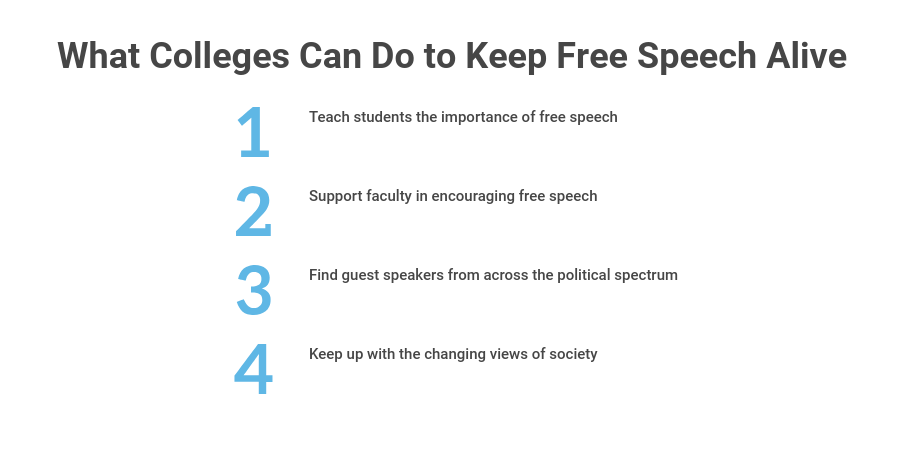As political polarization is growing, colleges must figure out how to ensure that political discussions on campus are constructive. For that to happen, schools need to take the lead in promoting a positive climate for political discussion. For campus leaders who would like to do so but don’t know where to start, they can turn to a recent study on free expression and campus dialogue published by Jennifer Larson, Mark McNeilly, and Timothy J. Ryan, three professors at the University of North Carolina at Chapel Hill. Last week’s Martin Center article touched on one aspect of the report, but four big takeaways deserve more attention:
1) Remind students of the importance of free speech and teach them how to have civil conversations with people who think differently.
The study found it important to begin teaching students what a liberal education requires as soon as they step on campus. For instance, adding a free-speech portion to first-year orientation programs can teach students the standards that are expected of them. The campus will be direct about university policies regarding free expression and regularly clarify rules. Offering training sessions on how students may voice their ideas while in class can also ensure everyone is on the same page.
2) Just as students need to learn the expectations for engaging in and respecting free expression, faculty need to be similarly supported.
Campus leaders need to offer “suggestions for and training on how to foster a welcoming and inclusive environment in the classroom,” the authors note. While the study focuses mostly on students, they also think it is important to focus on faculty behavior and free expression. Specific actions, such as adding a section in syllabi that states the professor’s commitment to free expression and constructive dialogue within the classroom, can be an important symbolic first step. And by explaining their commitment to fair and impartial grading, students may feel more comfortable expressing political views when they are relevant to the class content at hand.
3) Colleges need to host guest speakers who present a variety of views, not just the most popular views on campus.
Many students have become accustomed to not being challenged, which means that they will push back when guest speakers hold opposing views. However, many colleges, such as UNC-Chapel Hill, rely on professors and students to invite guest speakers. Some colleges might benefit from funding a speaker’s series where the provost invites speakers who offer a strong, minority opinion that students would otherwise not encounter on campus.
By creating a group to organize campus events with speakers who embody views across the ideological spectrum, students will have the chance to interact and learn more about political positions.
4) As the world is changing at an unstoppable rate, new ideas and views are arising daily.
The study ended their recommendations with the idea that in order to better understand free expression and constructive dialogue, campuses must expand their research to include faculty, staff, and administrators. By including all persons in campus life, their research will allow them to track political changes on campus. By being proactive, college leaders may succeed in protecting free expression.
When colleges protect free expression, they provide a learning environment for students to understand the world around them while growing into their role as responsible citizens.
Megan Zogby is a Martin Center intern.

